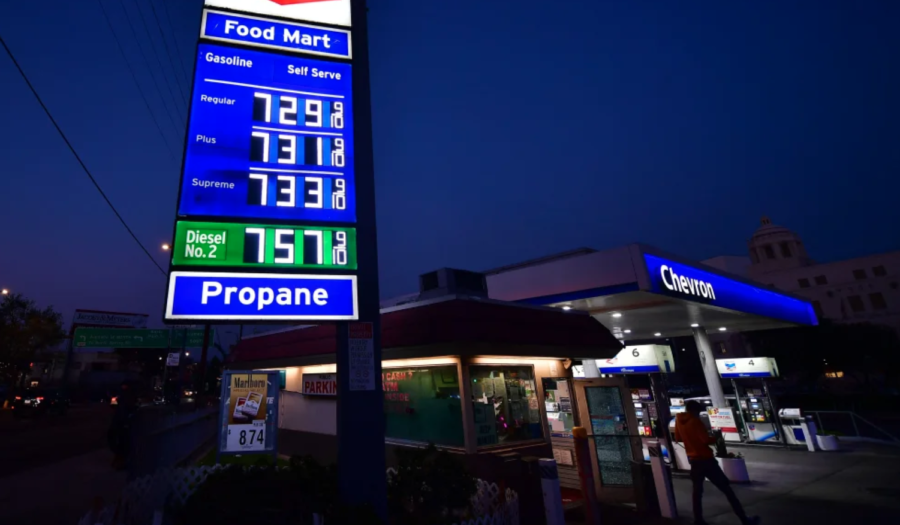Exorbitant Gas Prices Continue To Impact Venice Community
May 11, 2022
When will it end? How am I going to afford this?
It’s a concern echoed by many students and staff in the Venice community following the unfathomable hike in gas prices over the past several months.
The exorbitant prices have reached post-apocalyptic highs. Literally.
“The public are going to feel it a lot more than the elite,” said Art teacher Christopher Wright.
“I commute from Pasadena, and it costs me about 80 bucks to fill up my tank once every nine or so days,” Wright said. “It’s a little distressing to see gas prices that high, to be paying double, or at least 50% more than what I was paying before.”
Senior Will Duerr has also struggled to afford the high gas prices plaguing the Southland.
“For me it is a struggle, because my gas mileage isn’t too good,” he said.
“Recently I’ve been just filling up my tank halfway because it’s such a big bill. It’s over $100.”
Both Wright and Duerr are frustrated with how little is being done to lower prices for citizens, many of whom are still experiencing economic adversity post-pandemic.
“It’s just tough, seeing all your money being drained like that and feeding into the gas and oil corporations,” Duerr said. “It’s just annoying, you know, and it’s corrupt.
“Public transportation is always an option, but not if you’re busy and you have a lot to do. For middle class and working class people who are living a complicated lifestyle, it doesn’t cut it, while gas prices are just destroying people’s finances.”
The high prices have been aggravating, according to Wright.
“That mental distress is probably the thing that’s affected me most, and just that anger that oil and gas companies are doing this just because they can, not because they have to,” he said. “They don’t have to raise the price. They take advantage of a crisis, and right now the people aren’t making a lot of money. I’d rather not be paying this much when the oil companies are making record profits every quarter, you know what I mean? They’re not hurting, so why can’t they pass on some relief to us?”
As a result of plummeting affordability, Wright says he may have to scale back on how much he drives his car.
“I’ll be thinking about trying to limit my driving,” he said. “Which is really not too cool, because there’s a lot of things I like to do that are outdoors. I want to go places, but it makes you think twice about spending the money to drive 30 or 40 miles somewhere.”
Despite the financial hardship caused by these sky-high fuel prices, the state of California is planning to raise the gas tax this summer, meaning prices will continue to increase during one of the busiest driving seasons of the year. The 53.6 cents-per-gallon tax is scheduled to take effect July 1.
In addition, the Biden administration recently canceled new oil and gas leases in Alaska and the Gulf of Mexico, which is consistent with the administration’s climate agenda. However, this change, like the cancellation of the Keystone XL pipeline last January, will likely lead to a further increase in gas prices as the United States relies on oil imports from abroad, which are currently scarce due to a combination of factors: the war in Ukraine and Western sanctions on foreign energy producers (the current blockade on Russian oil imports being an example), and the elimination of projects that could bring possible relief at the pump — it’s a perfect storm created by global events and fiscal and climate policy.
“Politicians tend to say ‘I’m going to get all these things done, I’m going to pass all these bills, pass all these policies involving sustainability and cutting down carbon emissions,’” Duerr commented. “But the way the system is set up, none of those policies can even be passed. Is this going to last? Like, how much longer are the gas prices going to keep on increasing?
“It’s not really in the hands of the people, which is sad.”







